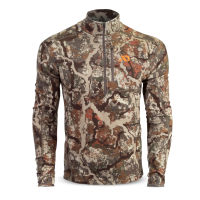
Days are long, nights are short, and the stakes are high. As you head out of town for a highly anticipated adventure hunt, creating efficiencies in your camp setup equates to less time at camp, more time in the field, and more sleep at night. As they say in the business world, time is money. If you’re looking for ways to make your camping setup more efficient this fall, here are a few starting points.
Camp in a Central Location When choosing where to park your truck camp, it’s easy to forget about Plan B. As any seasoned public land hunter knows all too well, Plan A often goes out the window fast when the trailhead starts looking like a Bass Pro parking lot. A component of your e-scouting strategy should include locating several camping sites that are central to each property you intend to hunt. Sometimes just the thought of tearing down camp and setting it all up two times in as many days can prevent us from moving spots and continuing to hunt a dead program. Choosing a campsite that is proximal and a reasonable commute from plans A, B, and C can save you time in the long run. A good alternative is choosing a camp setup with fewer creature comforts and a quicker set up/teardown time, which brings us to the next topic.
Quick Setups and Organization A quick-and-dirty camping rig that’s gaining in popularity is the truck bed setup. Jordan Budd—gear junkie, First Lite ambassador, and host of the Rokcast Podcast—advocates for this highly mobile camp approach. Jordan likes to take advantage of the Decked truck bed system, combined with a truck topper. As she explains, “being able to organize gear in the built-in drawers then sleep right on top of the Decked system minimizes the amount of totes you need to take in and out every night.”
Jordan stresses the importance of remaining organized by using individual totes for storing different types of gear. Using separate boxes for cookware, dry food storage, camping gear, hunting gear, tools, etc. makes things easy to find and results in a much quicker setup. “Keeping your gear organized and easy to load in the mornings is critical so you can start driving quickly in the morning,” Jordan explained.
These days there’s no shortage of purpose-built camping gear, some of which is very well suited for the traveling hunter. Honorable mentions include handy tow-behind campers, rooftop tents, truck bed campers, quick set tents, and modern-day cowboy-esque canvas bedrolls. Many of these systems can be deployed in no time flat and packed up with the same amount of effort. Regardless of which system you choose, also be mindful that a smaller footprint comes in handy and allows you to camp almost anywhere you darn so please. Otherwise, you can just about count on wasting 20 to 40 minutes as you drive around looking for a suitable campsite.
Efficient Meals Another easy way to simplify the logistics of a travel hunt is to refine your cooking strategy. Strategically planning your meals will keep you in the field longer with significantly less effort. Pre-made meals make your life a whole lot easier after a long day in the woods. Anything that can be reheated on a grill makes for an easy camp dish. Casseroles, pasta, BBQ ribs, chili, or enchiladas—camp meals don’t need to be confined to hot dogs and beans every night. By freezing your leftovers in individual serving sizes in a freezer or vacuum bag, the process can be simplified further. Drop the food, bag and all, into some boiling water and forget about it while you prep your gear for tomorrow’s hunt. A backpacking cook system makes quick work of heating up leftovers and will have your water boiling in a few short minutes.
We can all benefit from creating efficiencies in our daily lives. With a strategic approach, traveling hunts will start to feel like less work and your time afield will be more enjoyable. You’ll also increase your odds of getting a full eight hours at night, the lack of which takes a serious toll over the course of an extended hunt. Whichever setup you prefer, finding a few logistical efficiencies can create more time in the field and indirectly increase your odds of filling a tag.







Conversation